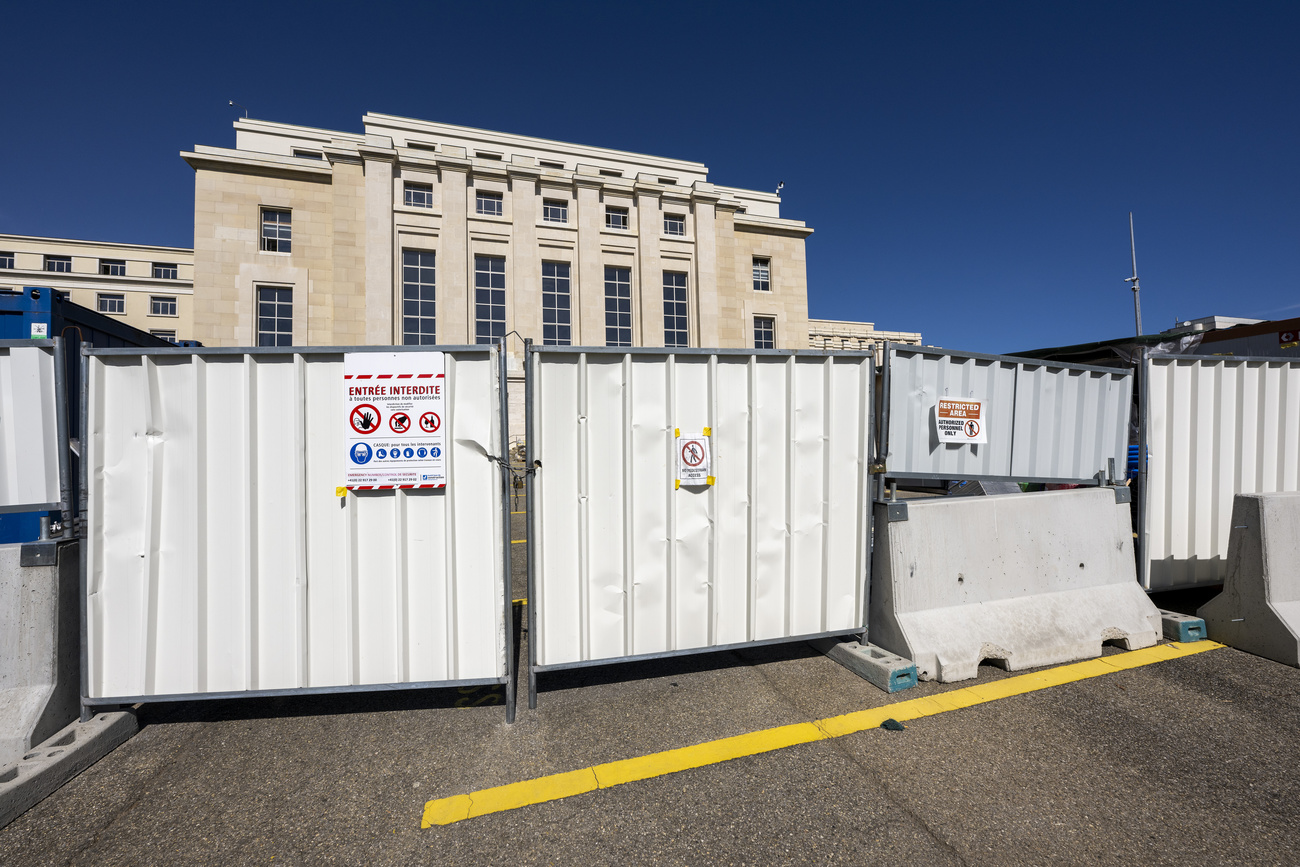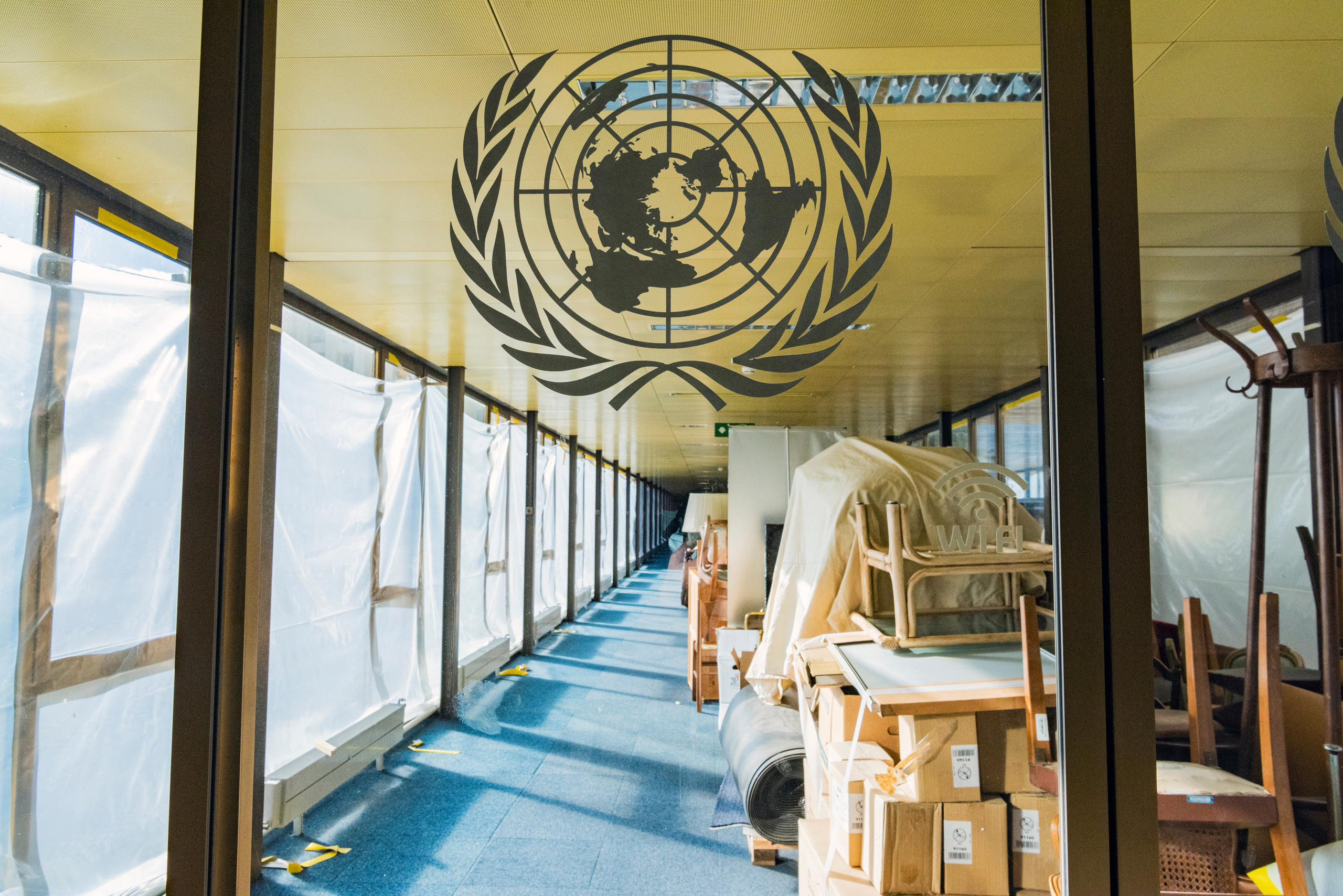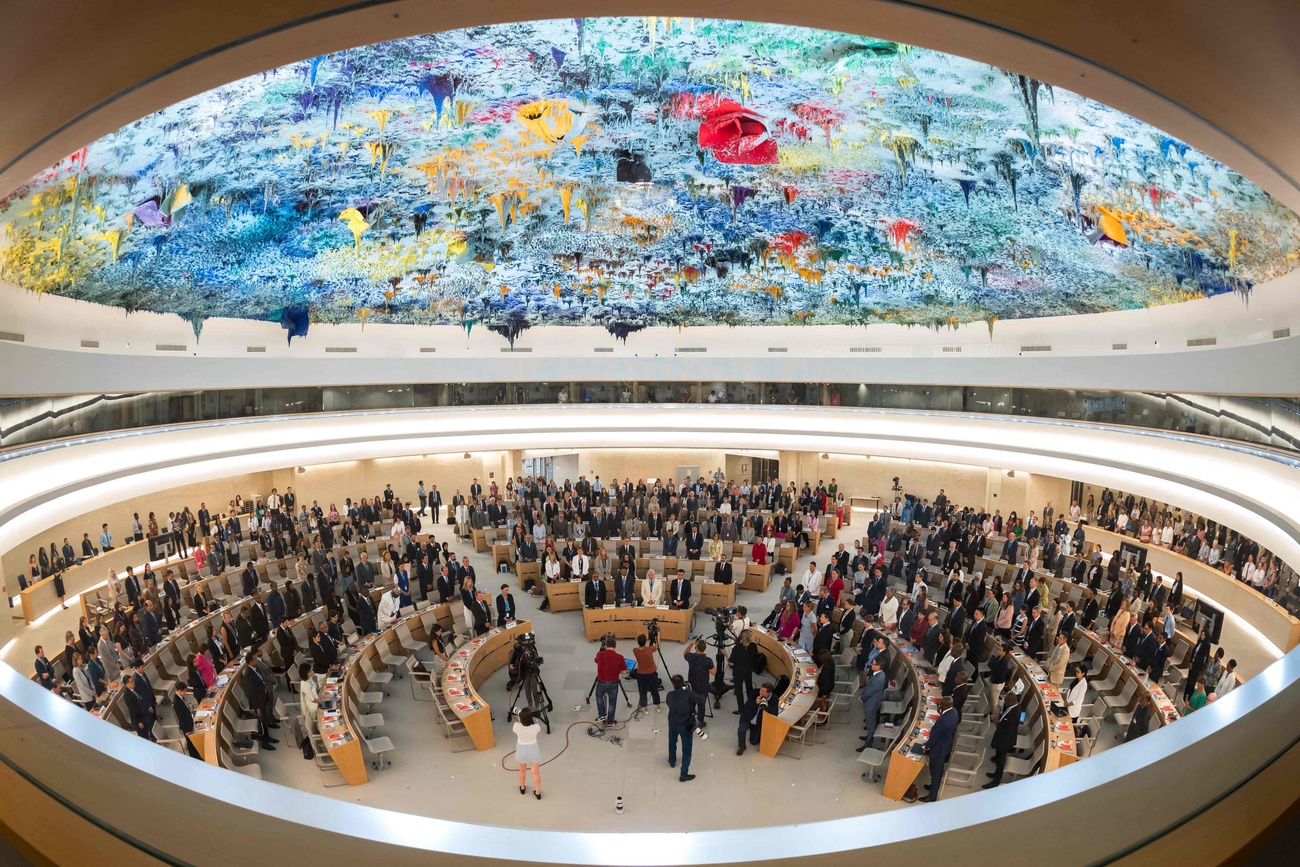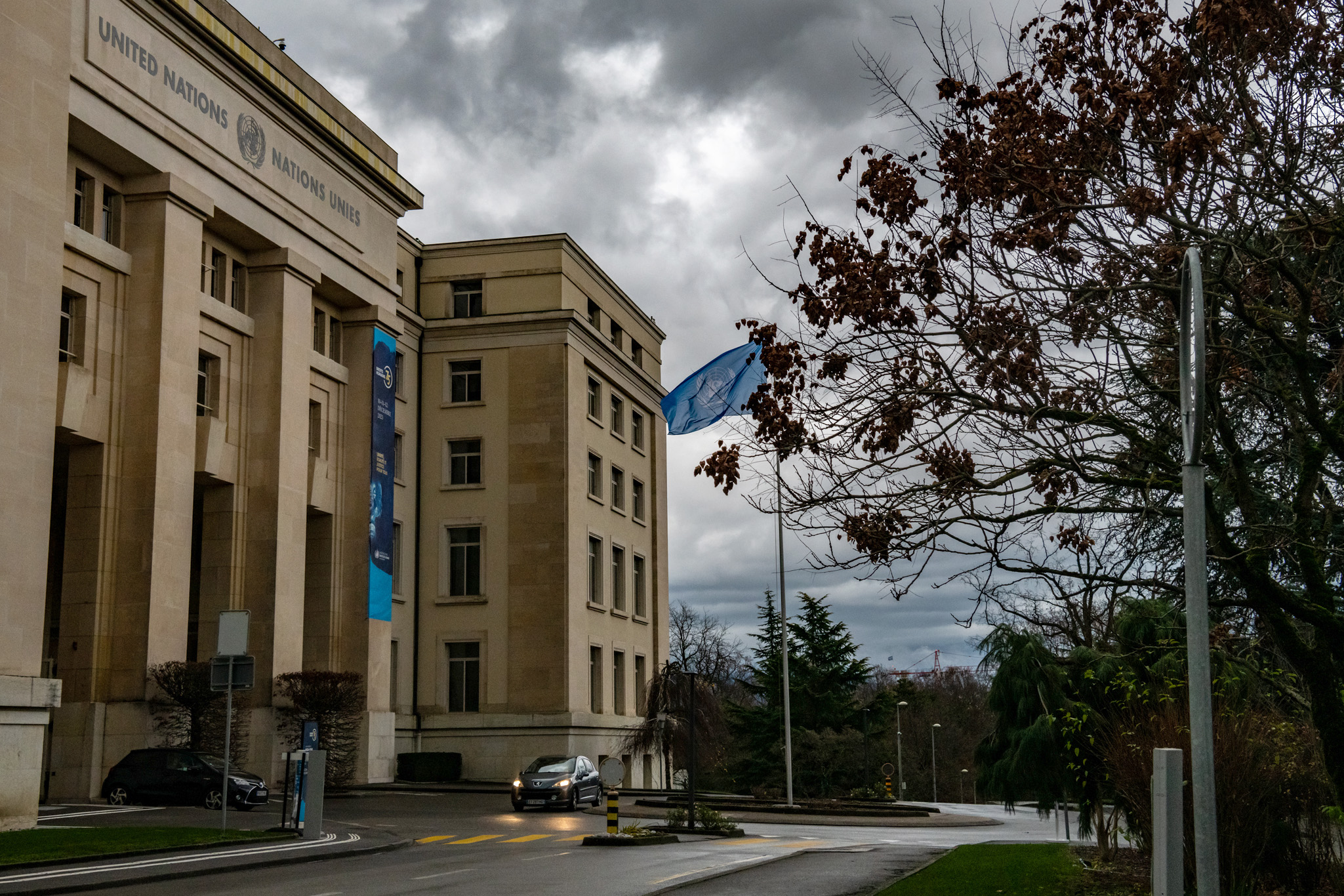UN activities in Geneva hampered by financial constraints

Facing an unprecedented budget crisis, the United Nations in Geneva has been forced to implement drastic cost-saving measures, affecting essential services and raising concerns about its ability to carry out its mission effectively.
“We are not operating as usual, and we recognise that both service delivery and staff welfare are experiencing immediate challenges,” says Alessandra Vellucci, director of the UN information service in Geneva.
The cutbacks mean that Geneva, a centre of international diplomacy and humanitarianism, is facing financial constraints that threaten to disrupt its work. The United Nations Office at Geneva (UNOG), a cornerstone of global negotiations for stability, is grappling with a 42% cut in non-salary expenses this year. This has led to a cascade of changes, from the dimming of lights at the Palais des Nations to the possible cancellation of all side events and NGO meetings.
Offices and meeting rooms at the Palais now close earlier, at 7pm. The rooms are chilly, as heating is dialled down to 20.5°C in winter, the thermostat is set to a modest 26°C in the summer, and outdoor lighting is minimised. Procurement of goods and services has been put on hold, except for the most essential items, and the purchase of uniforms and flags has stopped. Building operations have been downsized, and training programmes have been cut to the bare minimum.

More
The Palais des Nations: A nostalgic brick and mortar journey
Risk of cancellation
Due to budget constraints, the UNOG is now prioritising mandated official meetings, such as the UN Human Rights Council and the Conference on Disarmament, which are required to hold regular sessions each year. But that means that informal meetings, often the lifeblood of diplomatic engagement and civil society participation, risk losing out.
“All the offices, departments and units that make up the UN Secretariat must manage their programme of work within a reduced budget spending ceiling,” Vellucci explains. “However, to the best of our knowledge, none of the official intergovernmental meetings have been cancelled due to UNOG cash-saving measures so far.”
“Besides this liquidity crisis, we see that there is an increasing gap between the needs, between what we ask international organisations to do, and the resources available,” says Jürg Lauber, host country Switzerland’s ambassador to the UN in Geneva. “Switzerland supports a focused and effective multilateralism, where international organisations concentrate on their core mandates without duplication. Our priorities include working with local communities, investing more in cost-effective prevention measures, and using new technologies and science diplomacy for preventing crises and for the benefit of humanity.”
Broader implications
The financial challenges are having an impact on not just the UNOG staff but the broader International Geneva community. It requires strategic planning and innovation to manage the reduced budget while still maintaining essential functions and services. Moving to virtual platforms could be eco-friendly and inclusive, but it would make informal negotiations more difficult and affect the participation of civil society voices.

More
Is Geneva still the capital of peace?
“This crisis could mean scaling back mandates, cutting down on activities that may seem less important including for peacekeeping operations, or not renewing or launching a mission even if there could be a consensus on its necessity,” warns Lucile Maertens, associate professor of international relations at the Graduate Institute Geneva (IHEID).
This financial crunch is a result of the failure of some UN member states to pay their assessed contributions, the amount each country is expected to pay to cover the UN’s work and pay its staff. It is forcing the UNOG to save over $15 million (CHF13.5 million) from its budget while keeping essential functions. Geneva is not alone in this predicament: other UN offices such as New York, Vienna and Nairobi also face budgetary constraints.
Maertens points out that the UN’s liquidity crisis mirrors the economic challenges faced by member states, which are still reeling from the effects of the Covid pandemic, the war in Ukraine and the situation in the Middle East. But it also reflects a legitimacy crisis for multilateral organisations, which are often criticised by populist governments who oppose multilateralism. The UN is also sometimes accused by member states of inefficiency, even though states are the ones who decide on the UN’s budgets and activities.

The UN’s financial crisis could be a sign of a deeper shift in the global order, a challenge to the principles of multilateralism and dialogue that underpin its work. The impact of the budgetary shortfall could be felt particularly acutely in Geneva, where the UN hosts a range of diplomatic activities and human rights mechanisms that depend on reliable funding and political support, from panel discussions on the rights of indigenous people to campaigns on arms control.
“Without enough funds, multilateral meetings and negotiations could be cancelled or postponed”, Maertens warns. She suggests that any decisions to promote financial stability within the UN must be consensual among member states, as they need to recognise the benefits of such stability. However, she thinks that making long-term commitments is particularly challenging during crises like the current ones. The implication is that while member states are the key to financial stability, the path to achieving it is fraught with complex international politics and the immediate pressures of global crises.
Maertens suggests the cost-saving measures risk forcing the UN to abandon some of its inclusive global platforms, which are essential for bringing together a wide range of actors for multilateral dialogue.
“The main risk would be to give up on inclusive forums designed to bring around the table as many actors as possible, like UN processes do,” she adds.
Edited by Imogen Foulkes/ts

More
Lights out for the UN Palais des Nations

In compliance with the JTI standards
More: SWI swissinfo.ch certified by the Journalism Trust Initiative










You can find an overview of ongoing debates with our journalists here . Please join us!
If you want to start a conversation about a topic raised in this article or want to report factual errors, email us at english@swissinfo.ch.